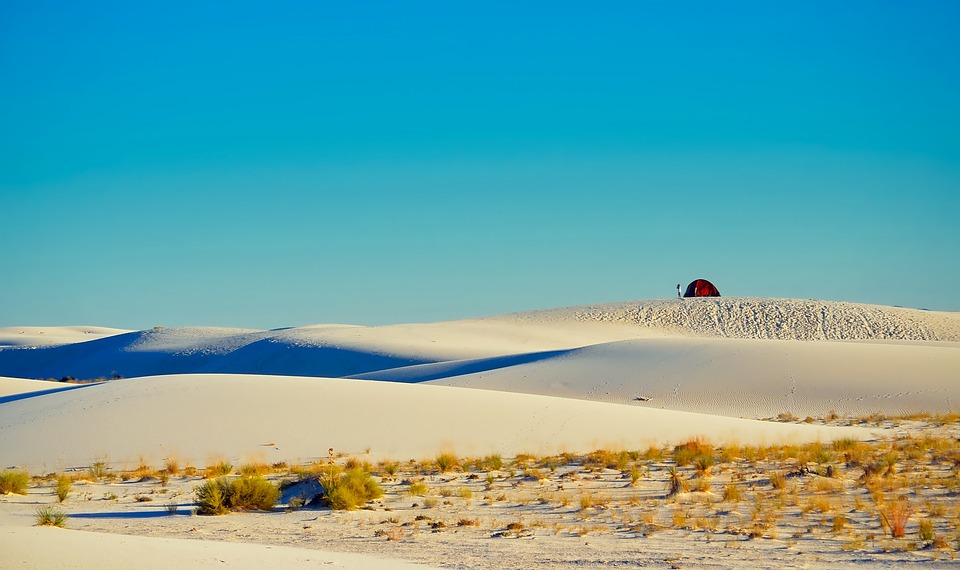Introduction
When it comes to backpacking, having a reliable tent is essential.
However, with so many options available in the market, selecting the right one can be overwhelming.
If you’re looking for a tent that is both compact and lightweight, we’ve got you covered.
In this article, we’ll explore some of the best backpacking tents perfect for your outdoor adventure.
1. Dome Tents
Dome tents are a popular choice among backpackers due to their lightweight construction and ease of setup.
These tents typically have a dome-shaped design with flexible poles that crisscross to form a sturdy structure.
They offer excellent stability and weather resistance, making them suitable for various outdoor conditions.
Additionally, dome tents often come with multiple vestibules for extra storage space.
Look for models made with durable materials, such as reinforced nylon, for enhanced durability.
2. Tunnel Tents
Tunnel tents are another great option for backpackers who prioritize weight and simplicity.
They are characterized by their long, tubular shape, with flexible poles forming a tunnel-like structure.
These tents are incredibly lightweight and easy to pitch, making them ideal for solo travelers or small groups.
Tunnel tents offer great ventilation and tend to have larger interior space compared to dome tents.
Look for models with lightweight yet durable materials, such as silicone-coated fabrics, to ensure longevity.
3. Ultralight Tents
If you’re aiming for the ultimate lightweight backpacking experience, ultralight tents are the way to go.
These tents prioritize weight reduction without compromising on performance.
They are specifically designed to be as light as possible while still providing sufficient shelter.
Many ultralight tents utilize innovative materials, such as lightweight fabrics and aluminum poles, to achieve their weight-saving goals.
Keep in mind that ultralight tents may have a reduced footprint and limited headroom, so consider your personal preferences and comfort needs before making a purchase.
4. Freestanding Tents
Freestanding tents are an excellent choice for backpackers who value convenience and versatility.
These tents are designed to stand up on their own without requiring stakes, making them easy to set up on any terrain.
Freestanding tents are often slightly heavier than their non-freestanding counterparts, but they make up for it with their ease of use.
They are also ideal for campers who frequently move between different sites, as they can be easily repositioned without dismantling the entire structure.
Look for freestanding tents with durable aluminum poles and sturdy construction for enhanced stability.
FAQs
Q: How important is weight when choosing a backpacking tent?
A: Weight is a crucial factor to consider when selecting a backpacking tent.
It directly affects your comfort and mobility on the trail.
Lighter tents are easier to carry, allowing you to cover more distance with less fatigue.
However, bear in mind that extremely lightweight tents may sacrifice durability and space.
Q: What is the optimal tent size for backpacking?
A: The optimal tent size depends on your specific needs.
If you’re backpacking solo, a one-person tent will provide sufficient space.
For couples or friends, a two-person tent is a common choice.
However, consider your own preferences and gear storage needs when selecting a size.
Keep in mind that larger tents tend to be heavier, so finding a balance between space and weight is important.
Q: Are backpacking tents waterproof?
A: Most backpacking tents have waterproof features or treatments to protect you from wet weather conditions.
Manufacturers often use waterproof coatings on the tent’s rainfly and floor.
However, it’s always a good idea to double-check the product specifications and read reviews to ensure the tent’s waterproof capabilities meet your requirements.
Q: How do I maintain and clean my backpacking tent?
A: Regular maintenance and cleaning are essential for extending the lifespan of your backpacking tent.
After each use, make sure to thoroughly dry the tent before storing it to prevent mold and mildew.
Use a soft brush or sponge with mild soap to clean any dirt or stains.
Avoid using harsh chemicals or machine washing, as they can damage the tent’s waterproof coatings.
Check the manufacturer’s guidelines for specific care instructions to ensure proper maintenance.
Q: Can I use a backpacking tent for camping in my backyard?
A: Absolutely! Many backpacking tents can be used for backyard camping or other outdoor activities.
Their compact and lightweight design makes them versatile for various settings.
Just make sure you have enough space in your backyard and follow proper setup instructions to ensure a safe and enjoyable camping experience.





